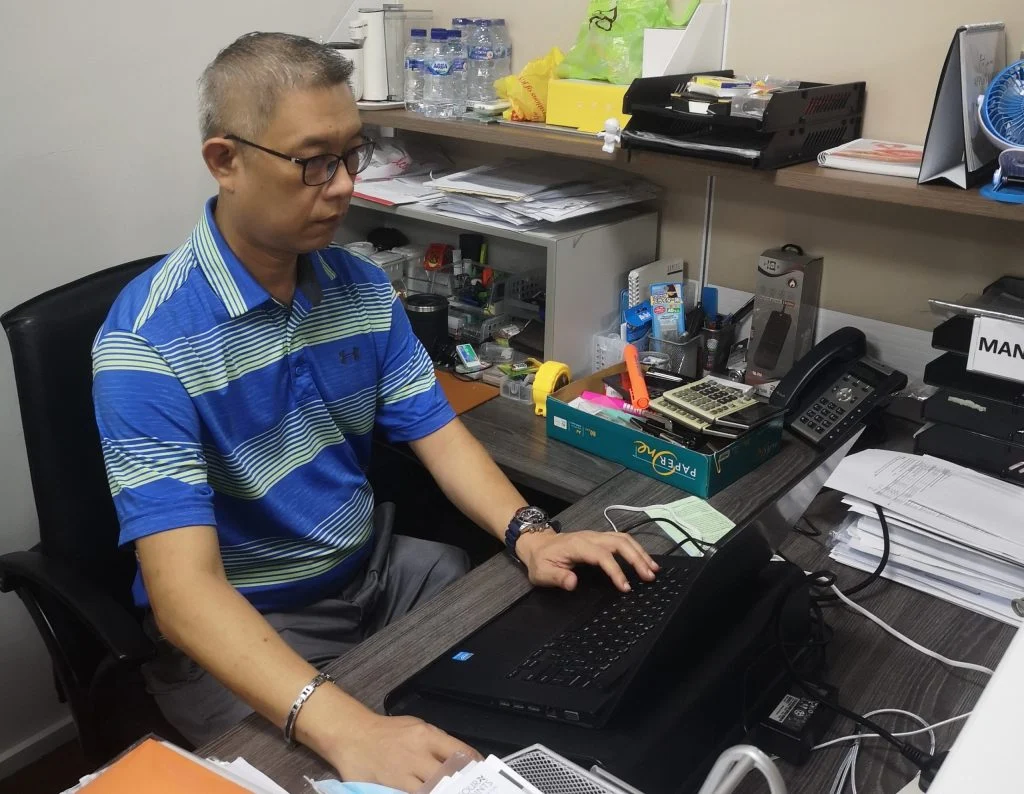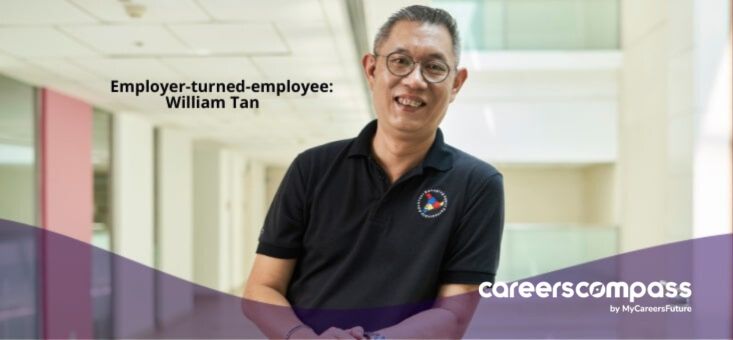Let’s face it—sometimes what we plan for, may not turn out the way we envisioned it. This was the case for many business owners who had to roll down the shutters with the advent of Covid-19. The prolonged restrictions on trade and business activities leave them with no choice but to call it quits.
Among them was William Tan, the owner of a company that specialises in building and construction. Having started his business in 2015, he had to shut down operations in 2020 amid the pandemic.
As he struggled to make ends meet, hope came in the form of Ingeus, a career matching provider of Workforce Singapore, who helped him find a job.
We speak to William to learn more about his transition story from being an employer to becoming an employee.
On being a boss previously
When and why did you start your own company?
I started my company in 2015. After being in the building and construction industry for more than 20 years, I felt that it was time to be my own boss. I have already accumulated enough knowledge, experience in my chosen trade and a well-established network in the industry to strike out on my own.
What was the size of your company?
I had 10 employees in my Singapore office and two staff in each of our offices in Malaysia and China.
The onset of Covid-19
How did the pandemic affect your company?
When the China-US trade war started in early 2019, a few of our regular big clients started scaling down their project commissions and we had to resort to taking on some smaller ad-hoc projects to keep the company afloat.
Towards the end of 2019, most of my employees mainly from countries such as Malaysia, China and the Philippines returned to their homes for the Christmas and Lunar New Year celebrations. I approved their leave as we do not have many projects on hand.
Although I had received news on the Covid-19 outbreak in China, it did not occur to me that the situation would become so bad leading to the closure of the borders.
However, when I received news that the borders would be closed in 2020, I had no choice but to let them go. Without staffing, it became imminent that the company would no longer be able to function.
What were some of the things you did to try and save your company?
Our first move was to shut down our overseas offices and try to retain at least 50% of our local staff strength. My partner and I tried in vain to get an interested party to take over the company as we did not have reserves.
Most of our reserves had been used up to sustain the company over the one-year period when our business was hit by the US-China trade war.
Ultimately, when the few staff we wish to retain could not make it back to Singapore due to the borders shut down, we had no choice but to sell off whatever we had to compensate our employees and settle some of the outstanding debts due to our subcontractors and suppliers.
After losing his company
How was life for you after closing your company?
It was very difficult. I could no longer afford payments for my house and car. I had no more savings and cannot afford to rent a place. So, my mother and I had to move into my brother’s house.
Fortunately, at that point in time, I had already obtained my vocational driving license. I rented a private hire vehicle and worked as a private hire driver during the day. For two weeks, I slept in the car.
However, a friend of mine learnt of my situation and insisted that I moved into his factory’s spare warehouse. He wanted me to have a proper place to sleep in. I stayed in the warehouse for nine months before shifting into a public rental flat with my mother.
Did you look for jobs?
Yes, I did. I think I sent out between 80 to 100 resumes to various companies in the building and construction industry but received no replies. I started to become disheartened and began to think that perhaps it was due to my age.
Read More: Still Can’t Find A Job After Several Months? Here’s What Helped This Singaporean Succeed!
What made you think that companies would not employ mature workers?
I assumed that maybe employers thought of older workers as unproductive and difficult to fit into the company’s culture or work with younger colleagues.
The light at the end of the tunnel
How did you discover Ingeus?
I was trying for a public rental flat and attended a Meet-the-People session. I was then referred to a family social service centre. A social worker brought me to Ingeus, a career matching provider of Workforce Singapore.
How did Ingeus help you?
Ms Angeline Tan, a career coach from Ingeus invited me to attend a consultation session with her. She looked at my resume and gave me tips on how I can improve on it. She also taught me networking skills on social platforms.
Later on, she noticed that my professional experience was a good match for the management trainee role that Advancer posted. Although the application for the position was already closed by that time, she made a call to the company and gave a strong recommendation for me.
After going through two rounds of interviews, I was hired. The whole process took only a week!
Life as an employee now
What is your current job at Advancer?

I am now attached to one of Advancer Global Pte Ltd subsidiary, SRE Global Pte Ltd, as a Complex Manager in charge of a shopping mall. Soon, I will be posted back to the head office of SRE Global Pte Ltd to join the Business Unit that oversees building the group’s business portfolio.
What’s your life like right now?
Earlier this year, I had just exercised an option to purchase a 3-room HDB resale flat in Bedok. Soon, I will be able to move out of the public rental flat which I have been staying in for a year now. This job has helped me save enough funds and CPF to be a homeowner once again.















